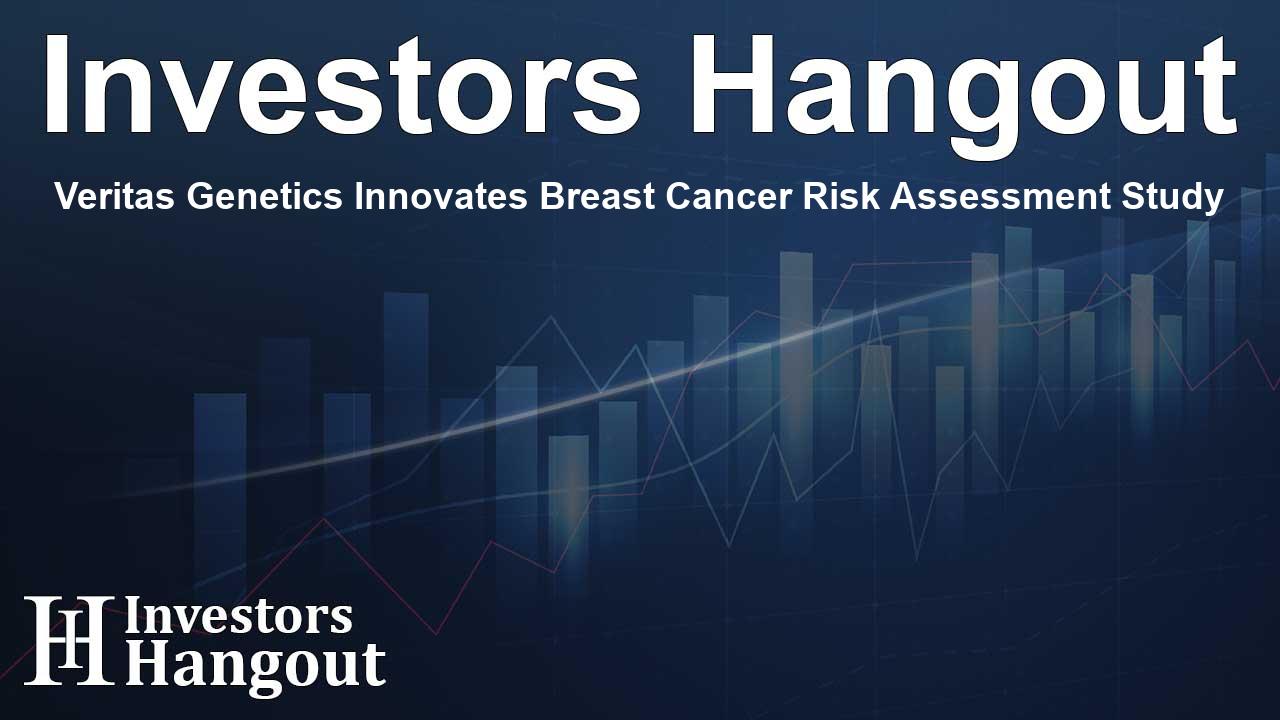Veritas Genetics Innovates Breast Cancer Risk Assessment Study

Revolutionizing Breast Cancer Management with Polygenic Risk Scores
In an exciting development in the field of oncology, Veritas Genetics has actively participated in a pioneering research initiative that emphasizes the significant role of polygenic risk scores (PRS) in improving the clinical management of breast cancer patients. This extensive study, conducted alongside the Department of Biomedicine and Prevention at the University of Rome Tor Vergata and the Tor Vergata University Hospital, showcases the critical importance of accurately identifying genetically predisposed individuals.
Key Insights from the Pioneering Study
The study, published in the Journal of Personalized Medicine, evaluated women who have a familial predisposition to breast cancer. The focus was on understanding how PRS improves the precision of risk prediction, particularly for women who do not carry pathogenic variants in key susceptibility genes like BRCA1 and BRCA2. More notably, this research was spearheaded by Professor Giuseppe Novelli and key members of the Veritas medical team, including Dr. Vincenzo Cirigliano, Dr. Luis Izquierdo, Giuliana Longo, and Bibiana Palao.
Enhanced Risk Assessment
One of the groundbreaking conclusions drawn from the study is that incorporating PRS alongside the evaluation of recognized pathogenic variants allows for a more comprehensive assessment of risks. This dual approach proves particularly beneficial for both mutation carriers and those who are non-carriers, refining personalized management strategies to better suit individual health profiles.
An Endorsement of Genomic Tools
Dr. Izquierdo, who serves as the Chief Medical Officer at Veritas Genetics, stated, "This study reaffirms the clinical value of genomic tools in personalizing preventive medicine. With PRS integrated into traditional genetic screenings, healthcare providers can deliver highly tailored care that caters to the distinct needs of each patient, potentially enhancing long-term health outcomes significantly.”
Importance of Polygenic Risk Scoring in Cancer Care
The implementation of PRS in cancer risk assessments represents a transformative shift in how healthcare professionals approach screening and preventive measures. Dr. Izquierdo highlighted this by stating that polygenic risk scoring provides in-depth insights into genetic susceptibility and enhances the understanding of cancer risks within families.
Future Implications for Personalized Medicine
As Veritas Genetics progresses in the pursuit of innovative genomic solutions, the findings from this study pave the way for a more proactive stance on health management. The use of PRS not only sets a new standard in evaluating cancer risk but also positions itself as a fundamental component in the evolution of personalized medicine. With this advancement, proactively addressing conditions like breast cancer could become more effective, potentially reducing overall patient risk.
About Veritas Genetics
Veritas Genetics is at the forefront of applying advanced genomic technologies focused on preventive and personalized healthcare. By collaborating with prestigious academic institutions, Veritas is committed to enhancing health and well-being through cutting-edge research and innovative practices.
Frequently Asked Questions
What are polygenic risk scores (PRS) and why are they important?
Polygenic risk scores are calculations used to estimate an individual's risk of developing certain diseases based on the presence of multiple genetic variants. They provide crucial information for personalized healthcare, particularly in preventive measures for hereditary conditions like breast cancer.
Who participated in the study conducted on polygenic risk scores?
The study involved collaboration between Veritas Genetics and the Department of Biomedicine and Prevention at the University of Rome Tor Vergata, along with Tor Vergata University Hospital, showcasing a strong partnership between academia and genetic research.
How do PRS improve breast cancer risk assessments?
PRS enhance risk assessments by providing a more nuanced view of an individual's genetic predisposition to breast cancer, particularly for those with a family history but who do not carry known pathogenic variants.
What impact does this research have on preventive medicine?
This research highlights the potential for genomic tools, like PRS, to lead to more tailored and individualized preventive strategies, ultimately aiming for improved health outcomes in patients at risk of developing breast cancer.
How does Veritas Genetics contribute to health innovation?
Veritas Genetics leads the way in genomic solutions by partnering with top academic institutions, focusing on pivotal research that advances personalized and preventive healthcare, particularly in genetic predisposition to diseases.
About Investors Hangout
Investors Hangout is a leading online stock forum for financial discussion and learning, offering a wide range of free tools and resources. It draws in traders of all levels, who exchange market knowledge, investigate trading tactics, and keep an eye on industry developments in real time. Featuring financial articles, stock message boards, quotes, charts, company profiles, and live news updates. Through cooperative learning and a wealth of informational resources, it helps users from novices creating their first portfolios to experts honing their techniques. Join Investors Hangout today: https://investorshangout.com/
Disclaimer: The content of this article is solely for general informational purposes only; it does not represent legal, financial, or investment advice. Investors Hangout does not offer financial advice; the author is not a licensed financial advisor. Consult a qualified advisor before making any financial or investment decisions based on this article. The author's interpretation of publicly available data shapes the opinions presented here; as a result, they should not be taken as advice to purchase, sell, or hold any securities mentioned or any other investments. The author does not guarantee the accuracy, completeness, or timeliness of any material, providing it "as is." Information and market conditions may change; past performance is not indicative of future outcomes. If any of the material offered here is inaccurate, please contact us for corrections.